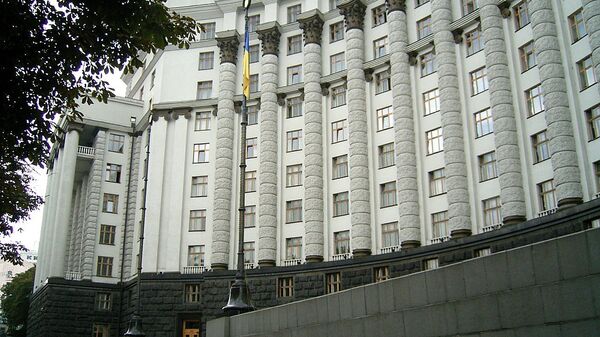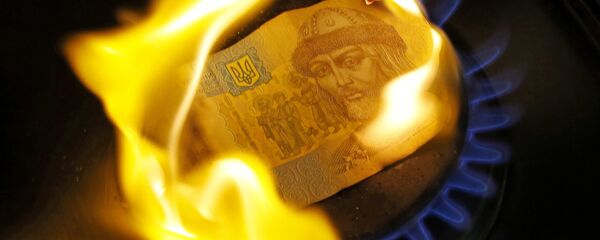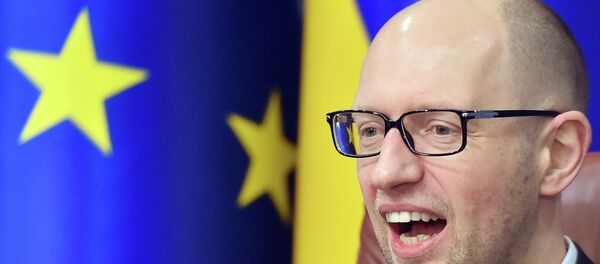"The optimists who actually held on to the paper through continued civil war, depression, devaluation, restructuring, and, finally, at the end of December, selective default, would have made a 41 per cent profit on their position," wrote John Dizard on Friday.
The $3 billion Eurobond, or external bond, was part of a $15 billion deal for Moscow to buy debt from Kiev with a coupon rate of five percent. The bond had a two-year maturity, and Ukraine sold the first tranche to Russia in December 2014, and received $3 billion in return. Moscow also discounted the price of gas to Ukraine by almost one third in order to help Kiev pay its foreign debt obligations.
At the time of the deal in December 2013, Russia's First Deputy Prime Minister Igor Shuvalov explained that Russia was providing the loan, paid for from Russia's National Wealth Fund, under strict conditions, and that both sides had followed expert advice in order to protect their rights.
"These bonds have been issued according to British law on the Irish market. That was exactly what was recommended by a group of specialists together with the Finance Ministries of Russia and Ukraine. And we think that in such a form our rights will be protected well enough."
"From the point of view of how the funds will be used, we are sure that the state of the Ukrainian economy will recover significantly," continued Shuvalov.
The bonds contained a clause which allowed the holder to declare a default if Ukraine’s government debt to gross domestic product ratio exceeded 60 per cent. Russia did not invoke this clause, and instead waited until the bond's maturity in December 2015, when Ukraine failed to make the repayment.
In December Kiev announced a moratorium on payments of the $3 billion debt to Russia, as well as some other commercial debts. While the Ukrainian government claims its debt to Russia is commercial, Russia maintains it is sovereign debt, a position the IMF agreed with in December.
It added that Russia is still willing to negotiate with Ukraine over the return of the funds, and is willing to consider contributions consistent with the IMF-sponsored program for Ukraine.
"The Russian Federation would carefully examine any meaningful proposal from Ukraine and believes that the commencement of legal proceedings does not preclude a constructive dialogue with a view to reaching an acceptable solution," the ministry stated.
Experts told the Financial Times that Russia and Ukraine will eventually find a resolution to the debt issue; sovereign debt lawyer Whitney Debevoise predicted that Russia will eventually accept payment in instalments, "which implies a net present value reduction."
In November Russian President Vladimir Putin said that Russia was willing to defer payment on the debt, and receive the three billion over the next three years, provided that it receives a payment guarantee from a third party.




